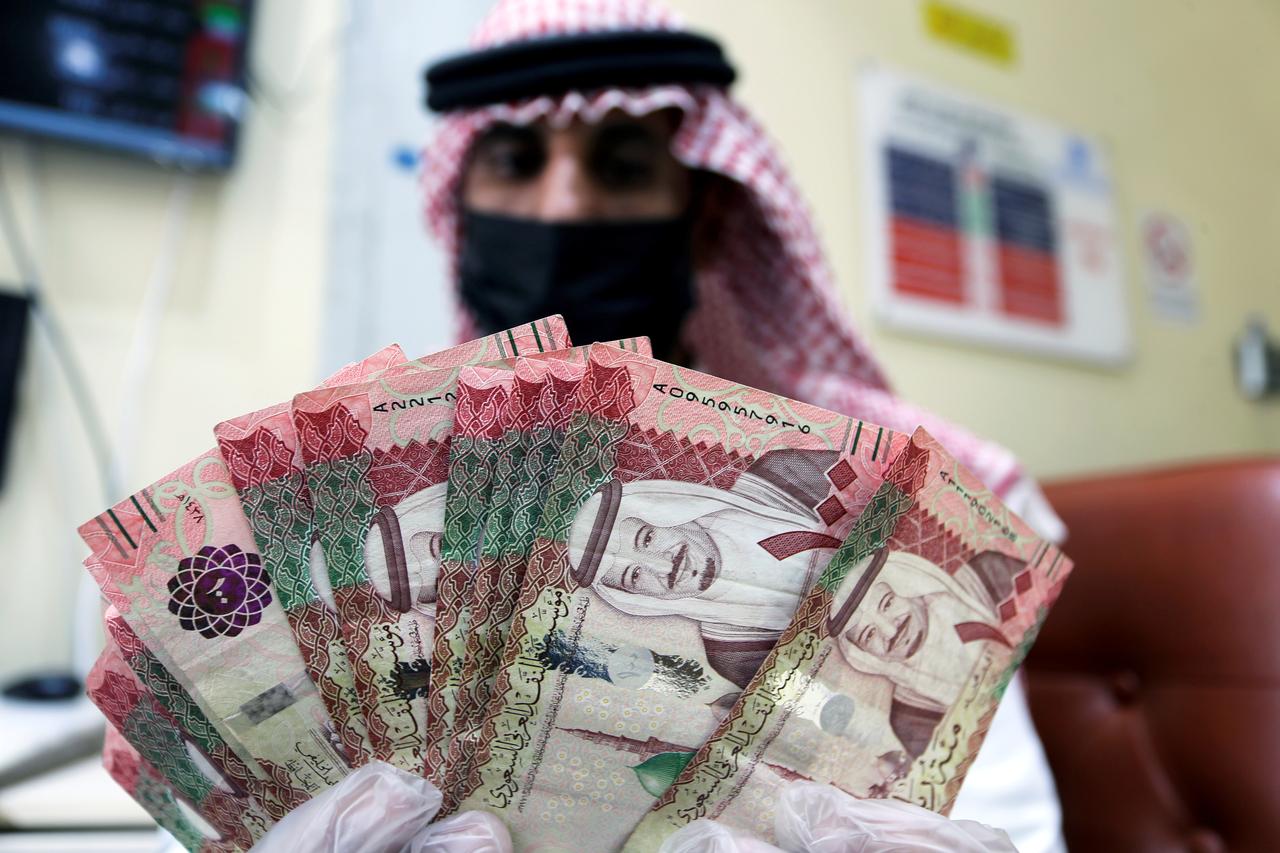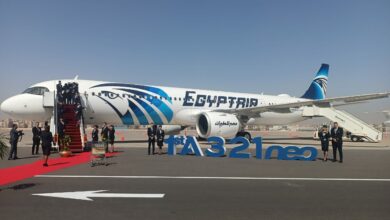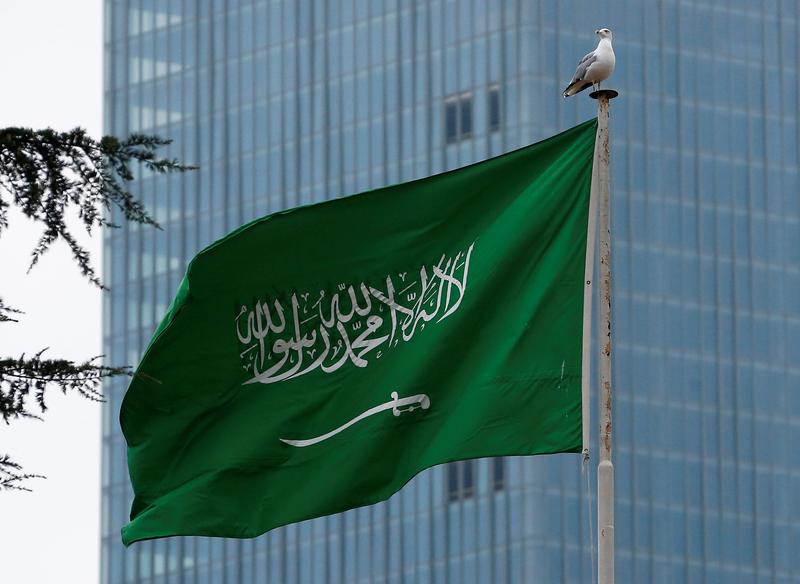
RIYADH/DUBAI (Reuters) — Saudi Arabia and the United Arab Emirates are spending tens of billions to prop up their economies during the coronavirus crisis and oil price slump but the scaling back of state projects is blunting the impact.
The pain felt by the tourism, retail, hospitality and logistics sectors due to global travel disruptions and closure of most public venues is spreading to the contracting and oil services industries in the Arab world’s biggest economies.
Saudi Arabia last week announced suspension of work on the third phase of a $100 billion expansion of the Grand Mosque in Mecca over coronavirus fears. Two days earlier, construction giant Saudi Binladin Group said in an internal note, seen by Reuters, that two employees on the project had been infected.
Riyadh-based MOBCO Civil Construction sent a memo to staff in the Saudi cities of Riyadh, Mecca and Medina notifying them that it plans to cut wages between 25% to 50% due to “unforeseen circumstances of COVID-19”, according to the internal document dated March 25, which was seen by Reuters.
MOBCO, a medium sized firm that handles commercial, residential and infrastructure projects, did not respond to a Reuters request for comment.
A source at a major Gulf contracting firm, who declined to be identified due to sensitivities around discussing business plans, told Reuters he has not seen any new Saudi projects awarded in the last two months.
“There are a lot of concerns, though work has not been suspended in the project we have now,” a Saudi contractor, who also asked not to be identified, told Reuters, voicing fears the state-backed project could be at risk.
“These workers eat, drink and sleep in the same place. If one only is infected, the whole project will stop,” he said, adding that it was too costly for contractors to halt work unless there is a government directive to do so.
REVENUE SQUEEZE
State spending in the energy producing Gulf is the main engine of economic growth. Saudi and UAE authorities have announced nearly $70 billion in stimulus to ease the impact of the coronavirus outbreak. Fitch Ratings said this accounted for more than 10% of the UAE’s GDP and over 4% of that of Saudi Arabia.
The stimulus consists largely of monetary and off-budget measures, for example loan repayment holidays to distressed businesses and individuals.
But there is a limit to how much money governments, who rely heavily on oil export income, can inject as oil prices tumble to 17-year lows. A supply battle between Riyadh and Moscow is exacerbating the impact of an unprecedented drop in demand as governments put countries on lockdown to stop the virus’ spread.
Even giant state oil firms have tightened belts, with those of Abu Dhabi and Kuwait issuing directives for cost cuts.
Abu Dhabi’s energy department last week postponed the announcement of winning bids for a solar power plant and said it was monitoring energy prices and supply chains.
Yousef al-Benyan, chairman of the business group of the Group of 20 economies, told Reuters small and medium businesses were most vulnerable to the coronavirus outbreak, whose impact he said could spill over to 2021.
“That’s where the regulators are trying to come up with support packages to help those SMEs to retain their work focus … and in order not to have an implication on jobs,” said Benyan, who is also chief executive of Saudi Basic Industries.
CASH FLOW
Job losses are not unusual during Gulf slowdowns – both Saudi Arabia and UAE saw big reductions during the last oil price slump in 2015 when state spending was slashed.
Bankers said liquidity is the biggest immediate challenge.
“Across the region we have spoken to every single customer across all sectors in the last 10 working days from a commercial banking perspective. The key thing is the concern around liquidity – have I got enough cash to trade,” said Daniel Howlett, head of HSBC’s commercial banking, MENA and Turkey.
Mazin Al Khatib, CEO of Nostalgia Classic Cars in Dubai, told Reuters his firm is negotiating a bridge loan to help cover operating costs but may still need to take painful decisions.
“I’m worried about the salaries at the end of the month, a lot of orders got cancelled, a lot of orders that were almost about to be done were delayed,” Khatib said.
Hathal al-Utaibi, chief executive of Riyadh-listed Alandalus Property, agreed the main challenges for the retail industry were managing cash flow and servicing loans.
“It goes without saying that the Q2 2020 financial results for many companies will reflect the business challenges of this period,” he told Reuters.
Saudi Arabia could see its 2020 deficit widen to 16.1% from a previous projection of 6.4% if oil prices average $40, according to Arqaam, a securities firm. At $30, the deficit would hit 22.1%, it said — roughly $170 billion, according to Reuters calculations.
The kingdom’s debt-GDP ratio was around 20% in 2019 and according to rating agency S&P it will rise to nearly 34% in 2020 and about 36% in 2021.
S&P expects the fiscal deficit of the government of Abu Dhabi, the richest of the UAE’s seven emirates, to increase to 7.5% in 2020, compared to 0.3% in 2019.
Reporting by Marwa Rashad and Saeed Azhar; Additional reporting by Hadeel Al Sayegh,; Yousef Saba, Alexander Cornwell and Davide Barbuscia; Editing by Ghaida Ghantous, William Maclean
Image: A Saudi money exchanger wears a protective face mask and gloves as he counts Saudi riyal currency at a currency exchange shop in Riyadh, Saudi Arabia March 10, 2020. REUTERS/Ahmed Yosri/File Photo




